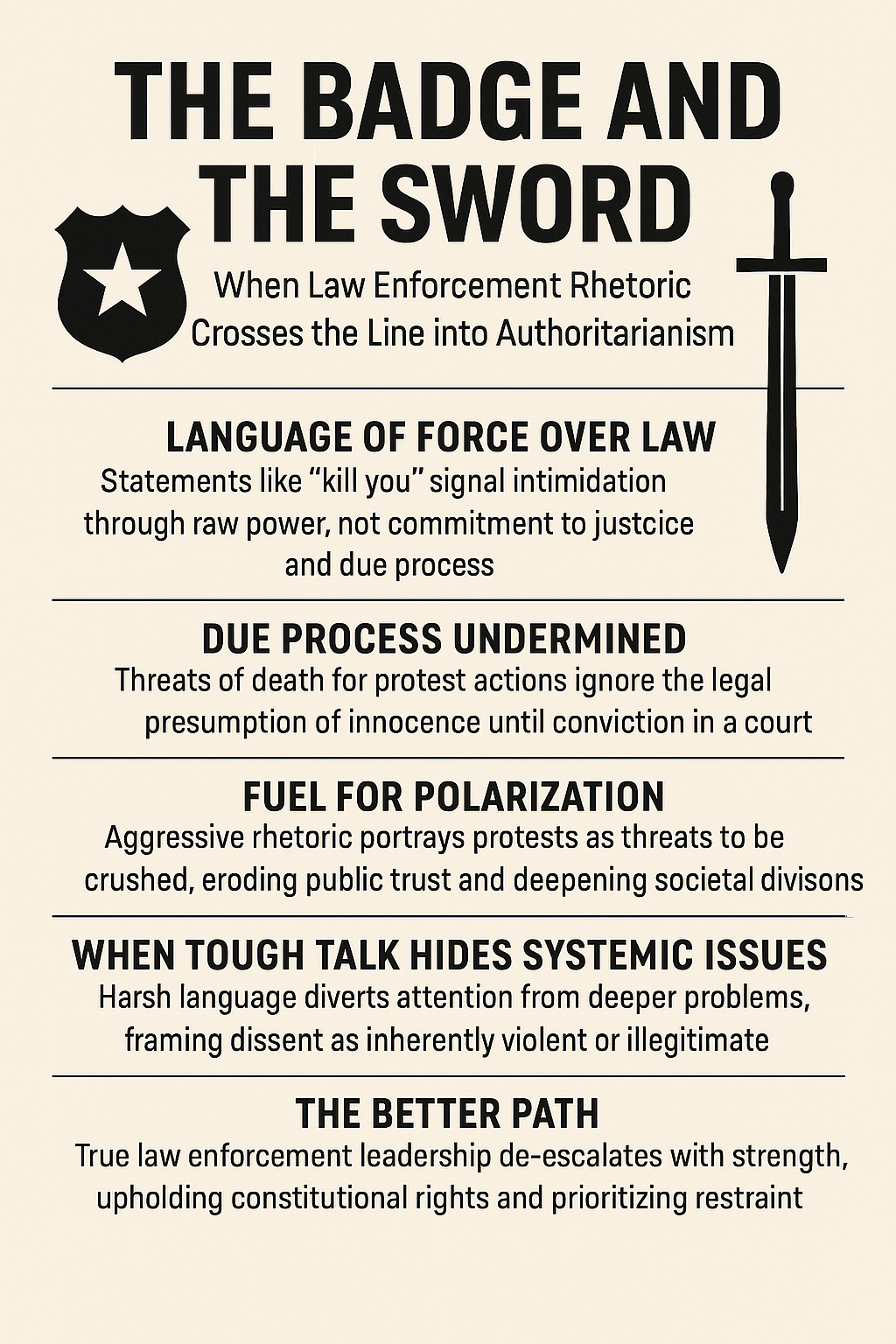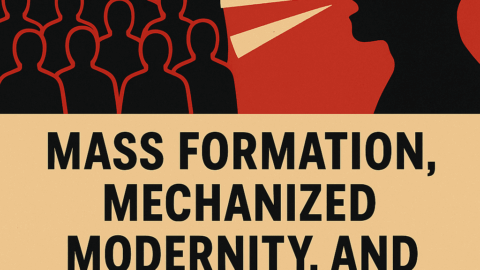Sheriff Wayne Ivey’s statement is a striking example of the escalation of rhetoric by public officials—particularly law enforcement—amid growing national tensions around immigration, protests, and civil unrest.
Here’s a layered breakdown:
1. Language of Force Over Law
Ivey’s statement—especially phrases like “graveyard dead” and “notify your family where to collect your remains”—uses the language of intimidation and raw power, not the language of justice, restraint, or constitutional law.
- Law enforcement’s role is to uphold the law with proportionality and due process, not to issue death threats.
- Rhetoric like this borders on extrajudicial bravado—where the badge is invoked as both judge and executioner.
2. Due Process Undermined
The comment implies that death is a presumed outcome for protestors who throw bricks or act violently, sidestepping arrest and trial.
Even in heated situations, the rule of law requires restraint: lethal force must be a last resort, not a promised outcome.
When an officer promises death as a response, it signals vigilantism under state authority, a very dangerous precedent.
3. Fuel for Polarization
This kind of rhetoric:
- Rallies those who see immigration protests as threats
- Alienates those concerned with civil rights, due process, and accountability
- Deepens tribal divisions, especially around law enforcement, race, and protest rights
It feeds into a larger national narrative where the public is told:
- “We are at war—against them (protesters, immigrants, etc.)”
- “We (police) are the last line of defense”
This binary logic justifies authoritarianism, often under the veil of “security” or “law and order.”
4. When Tough Talk Becomes a Smokescreen
Bold rhetoric can:
- Distract from systemic issues (e.g., why immigration protests are happening)
- Frame dissent as inherently violent to delegitimize it
- Deflect criticism of policy or law enforcement abuses
This parallels how color revolutions and psychological warfare tactics frame protesters as enemies of the state, even when peaceful.
5. What’s the Better Path?
A truly principled sheriff would say:
“We will protect lawful protestors, de-escalate where possible, and arrest those who break the law with necessary force—but always with justice, restraint, and respect for life.”
Such an approach:
- Upholds the Constitution
- Honors the oath of office
- Shows strength without bloodlust
Final Thought
Sheriff Ivey’s remarks reflect a troubling national trend: valorizing brute force over constitutional principle.
While violence against officers is unacceptable, so is state-sanctioned vigilantism in rhetoric or action. The danger isn’t just in what he says—it’s in what it signals: that deadly force is no longer exceptional, but expected.






